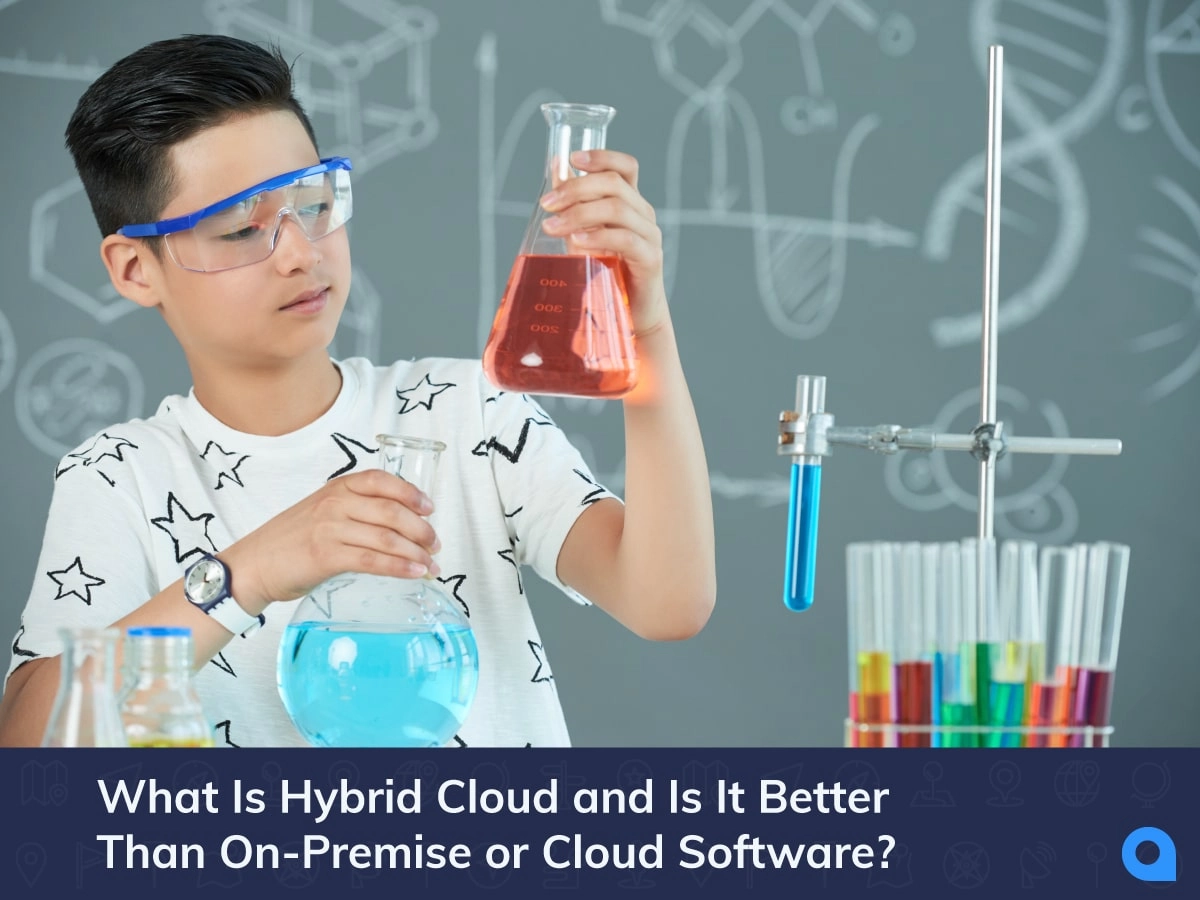
When considering business software tools for Customer Relation Management (CRM), Business Intelligence (BI), Geocoding, Address Validation, and more, most organizations are either looking specifically for on-premise options, cloud options, or they’re still debating between the two. On-premise and cloud have been dueling each other for many years.
However, a new challenger has entered the ring: hybrid cloud.
What Is Hybrid Cloud?
A hybrid cloud environment uses a mix of on-premises infrastructure, private cloud services, and public cloud services—such as Amazon Web Services (AWS), Microsoft, or Google.
Hybrid cloud’s power move? Agility.
By utilizing a hybrid cloud environment, organizations give themselves the flexibility to move between private IT environments or public clouds as their computing needs and costs change. Enterprises can take advantage of the security and reliability of an on-premise server or a private cloud for storing sensitive data, and the cost optimization and scalability of public cloud for less critical workloads.
What is a private cloud? This is the VIP lounge of the cloud services world—a cloud environment that’s accessed and used by only one client. The primary differentiator of private cloud vs on-premise solutions is that private clouds can be located within an organization’s data center (aka on the premises), or located and managed off-site by a third party.

What to Know Before You Go All In On Hybrid Cloud
Before you move to a hybrid cloud solution, make sure you have the technology in place to allow the two solutions to connect and interact. A strong network connection is essential. This usually means a wide area network or dedicated networking service for additional security.
Hybrid cloud can seem like the perfect marriage between on-premise and cloud because it offers both security and scalability. However, it’s important to note that implementing a hybrid cloud solution is more complex than a traditional cloud SaaS model, and therefore more expensive.
Budget will definitely impact the decision of cloud vs on-premise vs hybrid, along with other factors like your business structure and needs.
Scenarios Where Hybrid Cloud Crushes the Competition
Seasonal Spikes
A hybrid cloud solution benefits organizations with highly changeable workloads or recurring, but temporary, data processing spikes. These might include transactional order-entry systems that experience significant seasonal demand spikes—like pumpkin patches or theme park ticket sales windows.
Disaster Recovery
Although this increases data management complexity, a hybrid cloud solution is perfect for replicating essential on-premise workloads and backing up data to the cloud. This way, if a data center goes down, workloads will fail over to the cloud environment and continue to operate via on-demand cloud resources.
Future Thinking
Hybrid is a good way for organizations to experiment with cloud software services and see what works. By putting just one or two workloads on a public cloud or on a small-scale private cloud, organizations can evaluate systems over time and then expand their cloud presence as needed.
Many factors go into the cloud computing vs on-premise debate. Ultimately, what you choose will depend on your company’s specific needs, but our free ebook, On-Premise Vs Cloud Software: The 6 Step Executive Guide helps you make that decision armed with all the facts.


 Ryan Muir
Ryan Muir